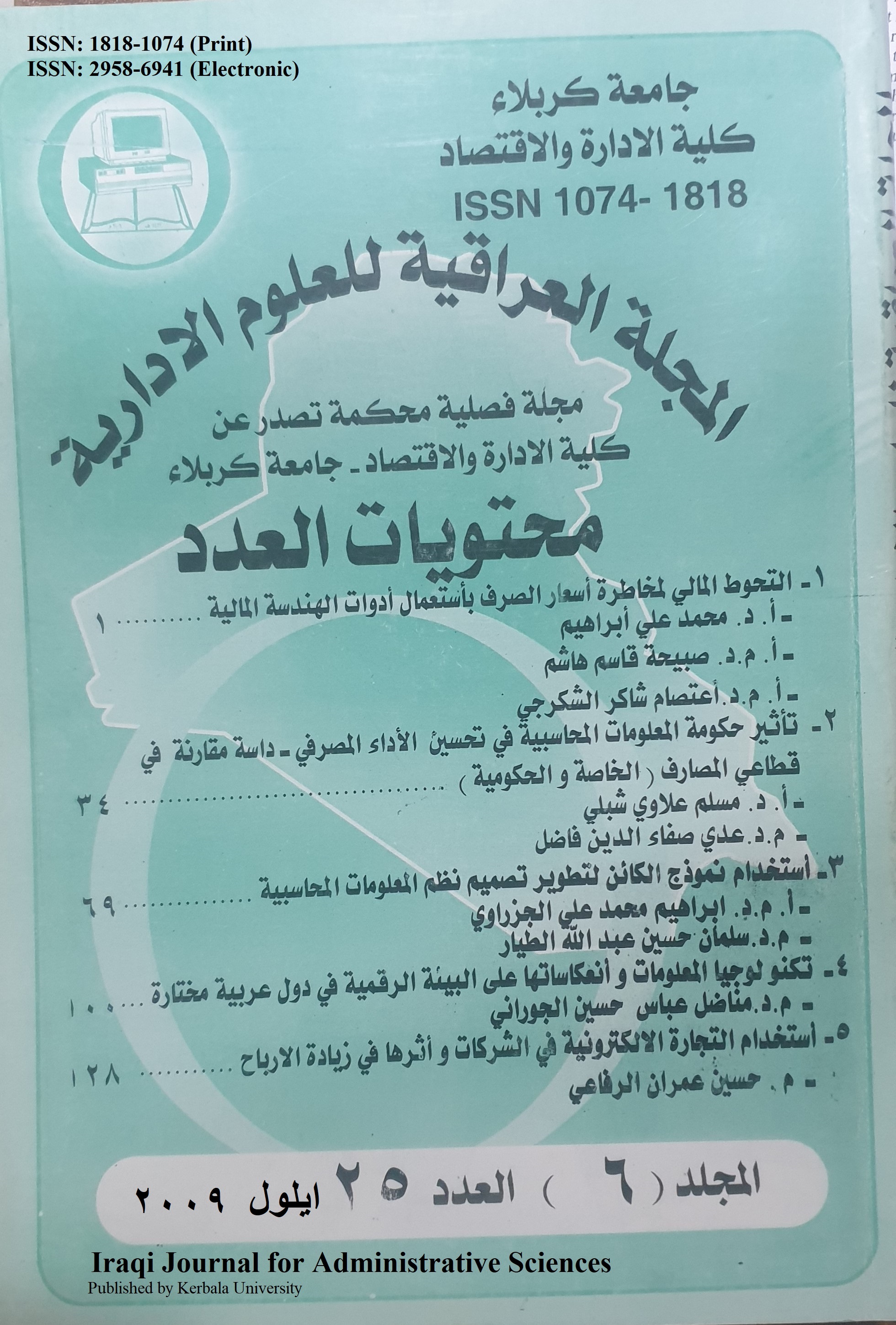أثر أدارة المعرفة في التغييير التنظيمي – دراسة تطبيقية في هيئة التعليم التقني
الكلمات المفتاحية:
أدارة المعرفة، التغيير التنظيميالملخص
استند البحث على متغيرين رئيسيين يتفاعلان بينهما ليشكلا الإطار الفلسفي له هذان المتغيران هما إدارة المعرفة والتغيير التنظيمي وقد انطلقت من مشكلة عبر عنها بعدد من التساؤلات استهدف من الإجابة عنها استجلاء الفلسفة النظرية والمرامي الفكرية لهذه المتغيرات كونها من المواضيع الحديثة على البيئة العربية عامة والبيئة العراقية خاصة ومن ثم تشخيص علاقاتها وأثرها وتكونت من عينة من كليات هيئة التعليم التقني والتي يتوقع أنها اقرب ما تكون الى المنظمات المعرفية وقد حددت تلك العينة (26)مشاهدة من أولئك في المستوى التنظيمي الأول والثاني مضافا أليهم من هم بدرجة أستاذ..وتوصل البحث إلى مجموعة من الاستنتاجات أبرزها :-
1_ضرورة امتلاك صناع المعرفة كل المقومات التي تجعلهم أهلا لشغل هذا المنصب وأهمها القدرة على التبصر والمهارة والخبرة.
2-تتوفر في المنظمات المبحوثة عمليات إدارة المعرفة والتي تسهم في دعم عملية التغيير التنظيمي بمستوى مقبول وبالرغم من توفرها،إلا أنها تحتاج الى دعم هذه العمليات وتطويرها.
3-إثبات صحة الفرضية التي تشير الى وجود علاقات ارتباط وتأثير بين متغيراتها اذ حصل متغير تطبيق المعرفة على أعلى قيمة ارتباط وهذا يدل على ان عمليات المعرفة هي جوهر تحسين إدارة المعرفة.فيما حصل متغير الهيكل التنظيمي من خلال عده التغيير التنظيمي على قيمة ارتباط عالية وذلك باعتبار هذا الهيكل يمثل حاملي التغيير في الكلية.
التنزيلات
منشور
كيفية الاقتباس
إصدار
القسم
الرخصة
الحقوق الفكرية (c) 2009 سعد عبدعابر

هذا العمل مرخص بموجب Creative Commons Attribution-NonCommercial-NoDerivatives 4.0 International License.
يحتفظ المؤلفون بحقوق الطبع والنشر لأوراقهم دون قيود.










